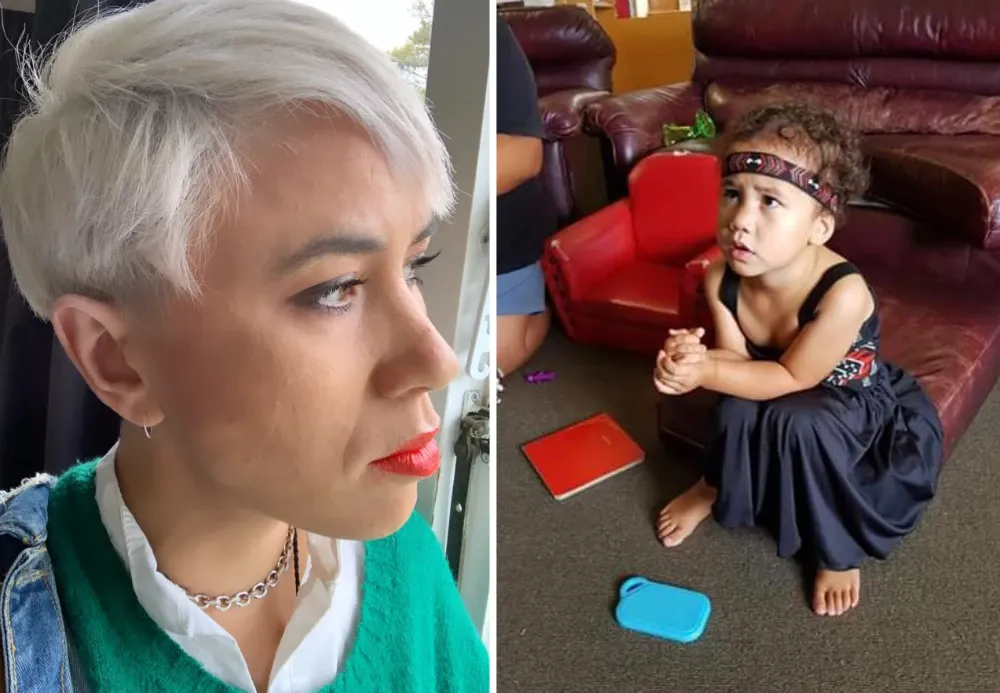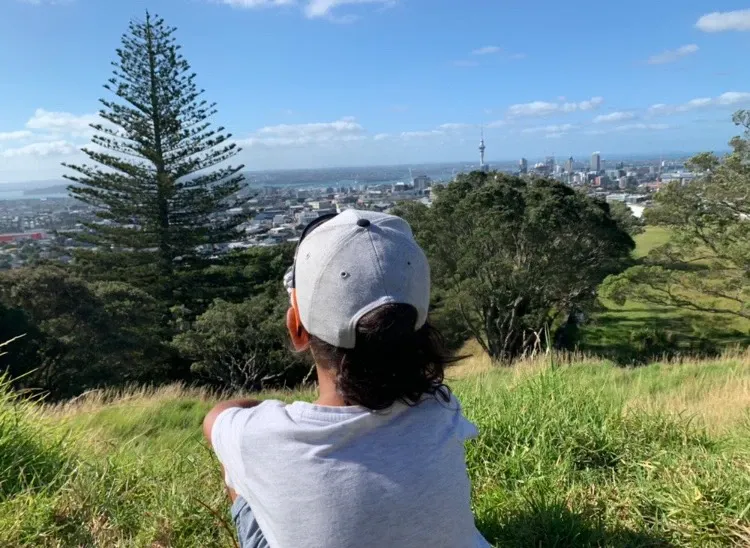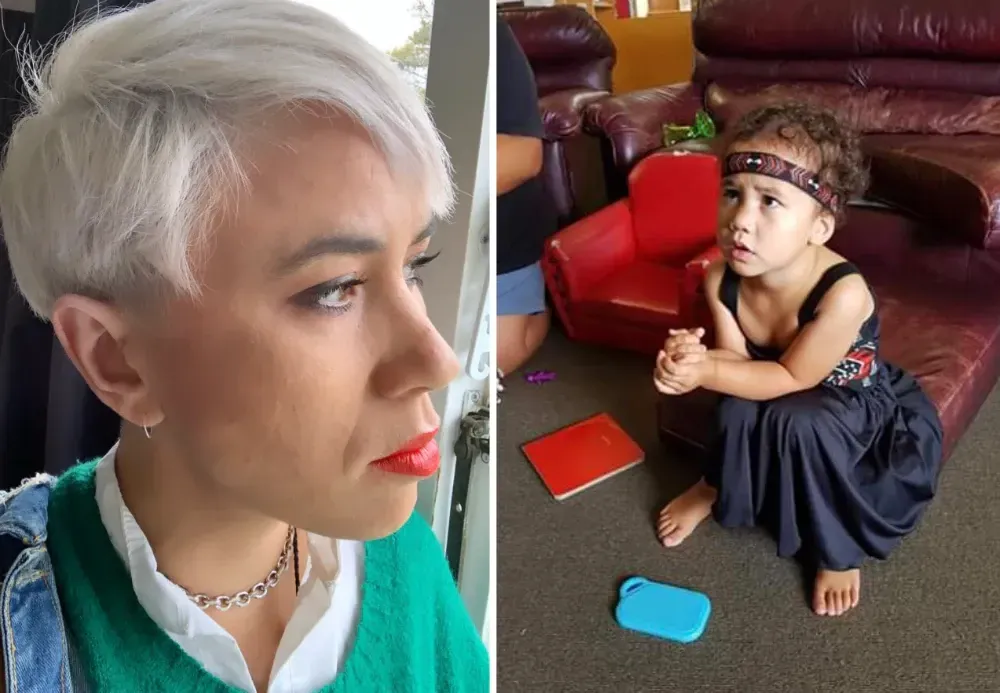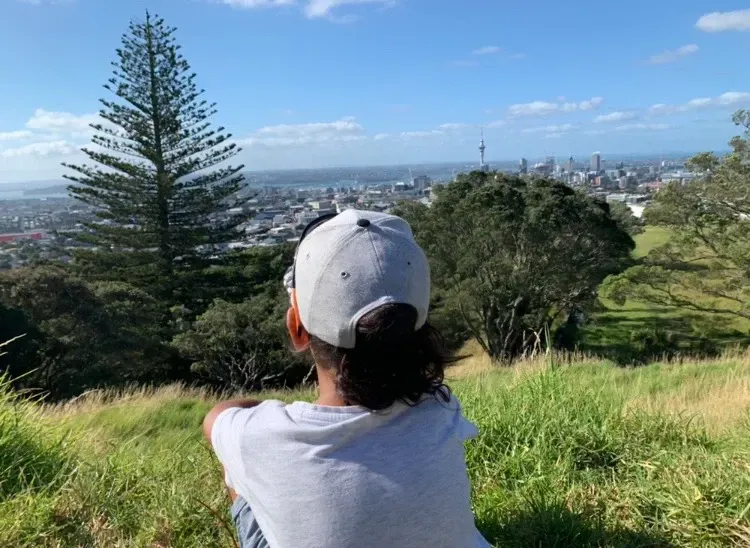Nobody ever taught me Māori
Written by

Writing this article was tough, possibly the toughest time I have ever had with getting myself to actually sit down and write, and when I took some time out to reflect I realised it is because te reo Māori is something that I don’t feel qualified to speak on. Because though I am Māori, I am ashamed to admit that I am not able to converse in te reo Māori.
There is a particular feeling of shame, that any non-fluent Māori person will know of, that washes over you when you’re in a Māori hui and somebody says, ‘We’ll start with a karakia, then we’ll sing a waiata, then we’ll do a quick whakawhanaungatanga, eh?’ You make sure to say ‘tina’ and ‘taiki e’ at the right times during the karakia, and if you’re lucky the waiata is one of the few you know so you’re not forced to shamefully mime along, ‘Tūtira Mai Ngā Iwi’, or ‘Te Aroha’, or if it’s a hymn, ‘Whakaaria Mai’, but you’re acutely aware of what is coming. You’re about to be exposed: you don’t know your own language.
You’re about to be exposed: you don’t know your own language.
I’m not sure if the fact that half of me is pākehā amplifies the shame. Does my deft use of the English language prove my pākehā father right when he says ‘You’re not Māori. You’ve just got Māori in you’?
The thing is, in English, words make sense to me. When I was in primary school and we did National Standards testing my reading and spelling age were always years ahead. I was the kid who got one hundred percent on spelling and reading comprehension tests. In high school, every English exam I sat required a short story to be written. My short stories would get full marks and were printed in the school yearbook. I’m good at English, because that is what I was taught, at home and at school. But nobody ever taught me Māori.
I mean, sure I have a few Māori words that I absorbed from hearing my mum’s slang when I was growing up, and I learned a few things about sentence structure from the few Māori classes and teachers I had throughout my childhood schooling. The once a week Māori class in Primary school, taken by the most woke white teacher as there were no Māori teachers. In Form One at Kerikeri High School there was Mr G. He was 100% Tokelauan and we spent most of our time in his class drawing kowhaiwhai patterns. When I moved schools in the Fourth Form to Okaihau College there was Mrs Smith, or as everyone at school called her, ‘Aunty Wini’.

Annette Morehu and her daughter before kapa haka - photos supplied.
I can still feel the burning shame that coursed through my body when Aunty Wini asked me to stand up in front of my new Māori class and tell everyone my pepeha. ‘I don’t know it.’ I whispered, almost without sound. ‘Well, where you from? She asked, matter of fact.
‘I was born in Whangarei?’ I answered, though it probably sounded more like a question.
‘Well, then you’re Ngāpuhi,’ she said.
‘But my dad says my mum’s not Ngāpuhi.’
‘Okay, well where’s she from?’
‘Well, all her family lives in Whangarei too. But before that they lived in Maungaturoto, and before that they lived in Ruatahuna, where my nan is from. And my koro is from Te Kao.’
‘Ahhhh,’ she said, knowingly. ‘Taku whanaunga. Tena koe.’ Then she told me to sit down, and everytime she passed by my desk she’d tell me a story about my koro’s sister who she used to play bingo with at the town hall, even though it was gambling, which was frowned upon because the bible says gambling is a sin, and Christianity seeped through the Far North like a plague when the colonisers came.
For many, along with Christianity came the belief that to maintain pre-European Māori culture and customs was unGodly, and as a result, many Māori, including my great-grandparents, turned their back on their culture, customs, and language. And now, three generations later, you have non-fluent me.
Thanks to the hard work of particular Māori stalwarts who campaigned for government assistance to honour Te Tiriti O Waitangi and revive te reo Māori (notably Jean Puketapu and Iritana Tāwhiwhirangi who were successful in creating the kōhanga reo movement in the 80’s, and not long later, Dr Katerina Mataira, Dr Pita Sharples, Dr Graham Smith, Dr Linda Smith, Dr Cathy Dewes, Tuki Nepe, Rahera Shortland, Pem Bird and Toni Waho, who created the foundations for kura kaupapa Māori), many whanau have reclaimed their Māori culture, and relearned te reo Māori. In rare cases, it was never lost. And if you care enough to look you will probably find a Māori community living as an iwi or hapu amongst most places in Aotearoa, and in fact, I live in one of them.
I live in Orakei with my husband and his iwi, Ngāti Whātua-o-Ōrākei, where te reo Māori is well and truly thriving.
When I first met my husband, I had no idea about the inner workings of living amongst a tribe and being a registered and participating member of an iwi that lives on their own whenua. I had no idea about iwi governance, or Treaty Settlements (like the one they made in 2011), and I had no idea why his family questioned the intentions of a disconnected, half-caste girl with two children from previous relationships when she was about to marry into the fold. But now that I know what I do, about the privilege that comes from being a part of a major iwi that has settled and is growing their own wealth, I would probably be questioning my motives too.
One of the many benefits of living amongst a settled iwi is that my son and daughter are both fluent in te reo Māori because my son goes to school in a rumaki reo unit and my daughter goes to puna reo, where every day they are fully immersed in te reo Māori.
One of the many benefits of living amongst a settled iwi is that my son and daughter are both fluent in te reo Māori because my son goes to school in a rumaki reo unit and my daughter goes to puna reo, where every day they are fully immersed in te reo Māori. The puna reo is managed by my sister-in-law who taught herself te reo Māori through night classes and weekend wānanga, and whose mission it is to make sure all of her nieces and nephews know their reo.
Many Māori have either retained or relearned te reo, and when you’re working in Māori spaces it’s not hard to find fluent reo speakers.
Organisations such as Te Wānanga Takiura o Ngā Kura Kaupapa Māori o Aotearoa are giving my generation a place to go to learn our language so that, at the very least, we can converse with our kura kaupapa raised tamariki. Many Māori are combining their newly acquired reo abilities with other qualifications and using it to their career advantage. With more and more funding available in many sectors to acknowledge and advance the Māori language, it now pays to speak it.
I certainly have a goal to learn how to korero Māori i nga wa katoa before I turn 40. When I have looked into applying to attend Te Wānanga Takiura o Ngā Kura Kaupapa Māori, I’ve found the spaces fill quickly, even after a second class was added. Many have made the sacrifice of a year's wages to fully immerse themselves in te reo me ona tikanga Māori, but it is a sacrifice, and it’s a sacrifice I feel judged for not having made. I’m not sure who I feel judged by exactly, but I do remember one time in my early 20s when I was trying to normalise the use of my limited Māori vocabulary by writing a Facebook status in te reo Māori, and a fluent friend of mine helpfully pointing out my incorrect use of the tohuto (macron). I particularly remember the dampening of my flame.

Annette's son - supplied.
So my knowledge of te reo is limited, and I feel much more comfortable telling you where I come from in English than in pigeon Māori, but as soon as my family and financial situation allows I am determined to make the sacrifice and plunge myself in a year long full immersion course of study, with the dream to one day stand in front of a hui and proudly recite my pepeha. But until then, I will use my command of the English language to profess that I feel wholly unqualified to speak on te reo Māori.
But thanks to Jean and Iritana, Katerina and Pita, my sister-in-law and Ngāti Whātua Ōrākei, my children won’t.
Annette is a poet, playwright and writer for South Pacific Pictures. She's penned another great piece about the power of storytelling for us here.

